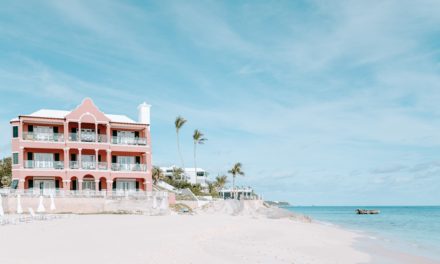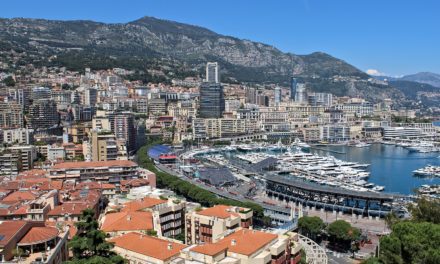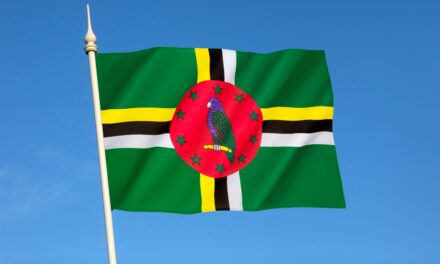Having a Child in Another Country Can Put You on a Fast Track to Citizenship
Introduction
Welcome to the exciting world of birth tourism, a trend that’s more than just a travel fad. It’s a strategic move made by parents-to-be seeking to secure an advantageous future for their unborn children. Birth tourism refers to the act of traveling to another country for the purpose of giving birth, thereby securing citizenship rights for the child in that country.
Why all this fuss about citizenship by birth? Well, it opens up a myriad of opportunities, such as access to better healthcare, quality education, numerous travel privileges, and an overall improved lifestyle. It’s like gifting your child with a golden ticket to a world full of possibilities!
Now, not all countries are in the business of granting birthright citizenship. In fact, there are only 35 countries around the globe where you can pop in (pun intended), have your baby, and walk out with a brand new citizen of the world! We’re talking about places like Canada, the USA, Mexico, and Brazil, among others. But hey, let’s not spill all the beans just yet.
Stick around as we take you on this incredible journey exploring birth tourism. By the end, you’ll be well-equipped with everything you need to know about this global phenomenon!
Benefits of Birth Tourism
Birth tourism, let’s call it, the golden ticket to a world that’s chock-full of opportunities. It’s like a magic wand, opening doors and creating paths that previously seemed unreachable. Ever heard about second passport opportunities? That’s one of the main draws of birth tourism.
A second passport, it’s not just an extra piece of identification. It’s a gateway to global mobility. Imagine this, visa-free travel to countries otherwise off-limits, employment and education opportunities in world-class institutions, and even healthcare becomes less of a burden. And all of these privileges are accessible through birth tourism – talk about hitting the jackpot!
But wait up! The benefits don’t stop there. Consider the dual citizenship benefits for children. Having dual citizenship is like being a part of two worlds at once. Children get to soak up the culture, language, and lifestyle from both countries. It’s not just about having access to two worlds; it’s about belonging in both places.
“A second passport can be your child’s ticket to global exploration and endless opportunities.”
But beyond all the glitz and glamour, dual citizenship also provides practical benefits. Think about easier access to public services, social security benefits, and even voting rights in both countries – truly a gift that keeps on giving.
So for those dreaming of a world where borders don’t limit potential, birth tourism might just be the answer you’re looking for!
Second Passport Opportunities
Second passport, a phrase that rings with intrigue and possibility. It’s not just about having an extra ID in your wallet. It’s about opening up a world of opportunities. Diving into the heart of the matter, a second passport is essentially citizenship in another country that you obtain through different legal ways, one of which is birth tourism.
“A second passport is your ticket to a life less ordinary.”
Now, let’s talk turkey – what does it take to get your hands on this golden ticket? The requirements for acquiring a second passport through birth tourism vary from country to country. However, the common thread that binds them all is the need for a child to be born in that country. Some nations may require additional conditions like residency or financial investment, while others might just roll out the red carpet based on birth alone.
Stay tuned as we explore deeper into this captivating world of dual citizenship benefits.
Dual Citizenship Benefits
Dual citizenship a golden ticket to a world of opportunities. But like all good things, it too comes with its own set of advantages and disadvantages.
The Upside
Let’s first dive into the sea of benefits for children with dual citizenship:
- Unfettered Access: They get the best of both worlds – unrestricted access to both countries, may it be for education, employment, or simply travel.
- Security Blanket: In times of political unrest or economic instability, having an extra passport acts as a safety net.
- Cultural Enrichment: Exposure to two different cultures fosters a broadened worldview and enhanced adaptability.
The Flipside
However, every rose has its thorns. Here are some potential drawbacks:
- Double Trouble: Dual citizens might find themselves subject to the laws and obligations (like taxes and military service) of both countries.
- Identity Crisis: Balancing two cultures might lead to a sense of divided loyalty or identity confusion.
Treading on the path of birthright citizenship too has its own pros and cons. On one hand, it grants immediate citizenship rights and benefits. On the other hand, it may lead to unforeseen legal complexities down the line.
Navigating these waters can be complex! But fear not, we’ll dive deeper into these concepts in the coming sections.
“Jus Soli” and “Jus Sanguinis”
When it comes to birthright citizenship, two Latin terms pop up like mushrooms after rain: jus soli and jus sanguinis. These ancient principles, still well-rooted in modern law, are the core of citizenship regulations worldwide.
Jus soli, translating as right of soil, is all about location, location, location. It grants citizenship to a baby born within a country’s territory, irrespective of the parents’ nationality. Imagine your little one saying their first word in the shadow of the Eiffel Tower or learning to walk on Brazil’s sun-kissed beaches – charming scenarios that come with a passport bonus!
“In jus soli countries, your baby’s first cry echoes with the rhythm of a new nationality.”
On the flip side of the citizenship coin is jus sanguinis, meaning right of blood. This principle awards nationality based on heritage and descent rather than birthplace. So if you or your partner have foreign roots that trace back to certain countries, your child could be eligible for dual citizenship straight from the cradle.
To acquire second citizenship through birthright under these principles differs per country. Some nations are generous with their jus soli policies, granting unrestricted birthright citizenship. Others have tighter reins, offering limited jus sanguinis rights or requiring specific circumstances for jus soli to apply.
When planning your birth tourism adventure, understanding these principles and their varying applications worldwide is essential. They’ll help you navigate the maze of international law and find the best path towards a second passport for your future world citizen.
Now let’s delve into an exciting process that speeds things up for parents too – fast-track naturalization!
Fast Track Naturalization
Let’s dive deep into the world of fast track naturalization, a process that paves the way for parents to acquire citizenship in the country where their child is born. This path of acquiring citizenship is like a golden ticket to a world of opportunities and benefits.
Fast Track Naturalization: The Process
Fast track naturalization for parents of local children is an accelerated process that allows parents to obtain citizenship based on their child’s nationality. The usual residency requirements are often waivered or shortened, making it quicker and more straightforward.
While every country has its own set of rules and regulations, typically, the procedure involves an application process, proof of birth within the country, and sometimes a simplified language or integration test.
Understanding the Timeline
The timeline for fast naturalization varies from country to country. In some places, it could be as short as one year, while others might require a waiting period of several years. It’s essential to research and understand the specific timeline for each country where you’re considering birth tourism.
Naturalization in Brazil
Brazil wears its heart on its sleeve when it comes to welcoming parents opting for birth tourism. The beautiful South American nation offers fast track naturalization for parents of Brazilian-born children. After just one year of uninterrupted residence, parents can apply for naturalization, skipping the usual four years’ wait time required for other foreign residents.
Naturalization in Mexico
Salsa your way into Mexican citizenship! Mexico also offers an expedited route to citizenship for parents of Mexican-born children. The standard requirement of five years’ residence before applying for naturalization is reduced to just two years if you have a Mexican child.
These countries with their open arms pave an expressway towards citizenship, making the journey less daunting and more welcoming.
Feeling excited? We bet you are! But hold onto that excitement as we move on to explore some countries that grant birthright citizenship. Get ready to unravel a world full of opportunities wrapped in cultural diversity, economic prosperity, and remarkable lifestyles! Next stop – Countries with Birthright Citizenship!
Countries with Birthright Citizenship
Ah, yes! Countries with birthright citizenship, an intriguing topic that beckons your attention. Let’s dive in to explore this exciting world.
Canada undeniably tops our list. As one of the few developed nations offering unrestricted birthright citizenship, it’s a haven for those seeking a high-quality lifestyle and excellent healthcare.
Next comes the United States. Despite the ongoing debates about birthright citizenship, the U.S. still grants automatic citizenship to children born on its soil. While birth tourism will get a US born child instant citizenship, it won’t get residency or citizenship for its parents.
In Latin America, Brazil and Mexico stand out. Not only do they offer birthright citizenship, but also fast-track naturalization for parents, making them attractive destinations for birth tourism.
Most countries in Latin America offer birthright citizenship. Unlike Canada and the US, birth tourism in Latin America will almost always lead to residency for the parents.
Moving across the pond to Europe, one might be surprised to find that Portugal is the only European country that offers birthright citizenship.
“Birthright citizenship is more than just a legal notion; it’s a life-altering decision packed with opportunities.”
Now let’s traverse to Oceania where Fiji and Tuvalu, despite their small size, grant automatic citizenship to anyone born within their territories.
Interestingly, in Africa, Tanzania bestows birthright citizenship even though many African nations don’t.
Lastly, in Asia, we have Pakistan, a country that might not be on everyone’s radar for birth tourism, yet provides this right unequivocally.
These countries each have unique laws around birthright citizenship:
- In Canada and U.S., it’s quite simple: being born on the territory grants you automatic citizenship.
- Brazil and Mexico require parents to reside legally in the country for a certain period before they can enjoy fast-tracked naturalization.
- Portugal requires at least one parent to be a legal resident or have lived in Ireland for a certain period.
- Fiji and Tuvalu have few restrictions,
- Pakistan extends this right regardless of parents’ nationality or legal status.
Indeed, each country has its distinct charm and set of rules regarding birthright citizenship. But remember – choosing a destination for birth tourism is not merely about obtaining a second passport. It’s about embracing new cultural experiences, exploring educational opportunities for your children, and opening doors to an enriched global lifestyle!
Unrestricted Birthright Citizenship
Dive into the realm of unrestricted birthright citizenship, a policy where every child born on the nation’s soil is automatically a citizen, no strings attached. It’s like striking citizenship gold!
Unrestricted Birthright Citizenship: The Nitty-Gritty
Let’s dissect this. Unrestricted birthright citizenship is all about location, location, location! Born here? Score a passport! This concept, prevalent in the American continent, grants automatic citizenship to all children born within the country’s borders, irrespective of their parent’s nationality.
The Good Side – Pros of Unrestricted Birthright Citizenship
- A Warm Welcome: Countries with this policy roll out a citizenship carpet for your newborn. They get immediate access to all the privileges that come with being a citizen — health care, education, and future work opportunities. Talk about starting life on the right foot!
- No Sticky Paperwork: No grueling immigration process or bureaucratic red tape to navigate. Your baby is an instant citizen from day one.
- Second Passport Perks: Your child will have a second passport, opening up a world of travel possibilities without visa headaches.
The Flip Side – Cons of Unrestricted Birthright Citizenship
- Tax Implications: Some countries, like the United States, tax their citizens on global income. So your kiddo could be tied to tax obligations in two countries.
- Military Service: In certain nations with mandatory military service (like Brazil), your child might have to serve when they come of age.
Embrace the adventure and complexities of unrestricted birthright citizenship. It’s an exciting journey with its unique set of rewards and challenges!
Restricted birthright citizenship, as the name implies, is a more selective approach to granting citizenship at birth. Unlike its unrestricted counterpart, this model sets up certain conditions that must be met for a child born on the soil to be considered a citizen.
Let’s dive into the pros and cons of countries with restricted birthright citizenship:
Pros:
- Controlled Immigration: Countries with restricted birthright policies can better control their population growth and immigration rates. This can lead to a more stable economy and social structure.
- National Security: These countries may feel more secure knowing that citizenship isn’t given out freely, but rather earned or inherited.
Cons:
- Complexities and Confusion: The rules can be complex and may create confusion for potential immigrants. For instance, some countries only grant citizenship if one or both parents are citizens or legal residents.
- Potential for statelessness: If a child doesn’t qualify for citizenship in the country they’re born in, and also doesn’t meet the requirements for their parents’ home country, they could end up stateless.
Countries adopting a restricted birthright policy often aim to maintain their cultural integrity and control population dynamics. However, it’s worth noting that this restriction could potentially deter tourists who might otherwise contribute positively to their economy. As always, the impact of such policies depends largely on how they’re implemented and managed.
Next up: Let’s discover which nations offer birthright citizenship and explore their unique laws around it. Stay tuned!
The Grand Finale: Drawing the Curtains on Birth Tourism and Birthright Citizenship
Let’s take a moment to rewind and remember the journey we’ve taken together. We started by unpacking the suitcase of birth tourism, delving into its many pockets – from understanding what it truly means to appreciate its potential benefits. We held hands as we navigated the labyrinth of dual citizenship, dissecting its pros and cons for our little ones.
We then took a deep dive into the sea of “Jus Soli” and “Jus Sanguinis,” surfacing with a newfound knowledge of these age-old principles. Fast track naturalization? We sprinted across its landscape, taking in the sights of Brazil and Mexico as prime examples.
Our expedition led us to the captivating world of birthright citizenship, exploring both unrestricted and restricted variants, each with its own charm and challenges.
Yet, before you pack your bags and set off on your own birth tourism adventure, there are a few things to mull over.
- Laws and Regulations: Brush up on your chosen country’s current policies surrounding birthright citizenship. Laws can change quickly, so staying updated is critical.
- Residency Requirements: Some nations require a certain period of residency before granting citizenship. Make sure this fits into your plan.
- Financial Implications: From travel costs to living expenses – ensure you have a clear financial roadmap.
- Future Prospects: Consider the future opportunities that particular citizenship might offer your child – education, healthcare, work prospects, etc.
Remember, every family is unique. What works for one may not work for another. So take your time, do your homework, and choose wisely. Your child’s second passport is not just a document; it’s a gateway to infinite possibilities!
Your Questions Answered
What is birth tourism?
Birth tourism refers to the practice of traveling to another country for the purpose of giving birth there in order to obtain citizenship for the child and legal residency for the parents.
Which countries grant birthright citizenship?
Countries that grant birthright citizenship include the United States, Canada, Mexico, Brazil. Most countries in the Americas grant birthright citizenship.
What are the benefits of birth tourism?
Birth tourism provides an opportunity for obtaining a second passport and dual citizenship benefits for children and parents.
What is a second passport?
A second passport is an additional passport obtained by an individual, which can provide various advantages such as visa-free travel and increased global mobility.
What are the requirements for acquiring a second passport through birth tourism?
The requirements for acquiring a second passport through birth tourism may vary depending on the country, but generally involve meeting certain citizenship requirements and fulfilling necessary documentation.
What are the advantages and disadvantages of dual citizenship for children?
Advantages of dual citizenship for children include access to multiple countries’ benefits and opportunities. Disadvantages may include potential conflicts in legal obligations or limitations on certain rights such as worldwide taxation and military service.
What is ‘Jus Soli’ and ‘Jus Sanguinis’?
‘Jus Soli’ (right of soil) refers to the principle of acquiring citizenship based on place of birth, while ‘Jus Sanguinis’ (right of blood) refers to acquiring citizenship based on the citizenship of one’s parents
How does fast track naturalization work for parents of local children?
Fast track naturalization allows parents of children born in a foreign country to expedite the process of obtaining citizenship in that country. The specific requirements and timeline may vary depending on the country.
Which countries offer fast track naturalization for parents?
Countries such as Brazil and Mexico offer fast track naturalization for parents of children born in those countries.
What should be considered when choosing a country for birth tourism?
When choosing a country for birth tourism, factors such as birthright citizenship laws, healthcare facilities, safety, and future opportunities for the child should be taken into consideration.










